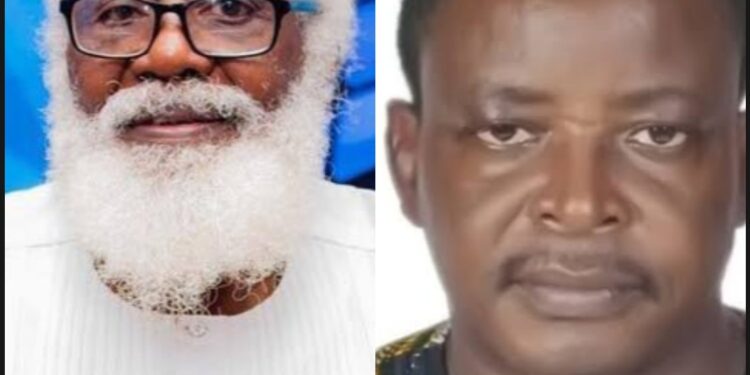In a viral edition of the widely followed “Boiling Point Arena” interview series, esteemed panelists Professor Olutayo Adesina and Dr. Yemi Farounbi expressed reservations on Nigeria’s precarious state. Both scholars emphasized that the nation, once hailed as the “Giant of Africa,” is now ensnared in confusion and requires a 360′ makeover.
Reflecting on Nigeria’s trajectory since its independence in 1960, both Professor Adesina, a renowned historian at the University of Ibadan, and distinguished media figure Dr. Farounbi, concurred that the foundational structure of Nigeria’s entity is flawed. They warned that any components derived from this faulty foundation could eventually collapse.
Organized as the 10th installment of the monthly “Boiling Point Arena” discourse, the event centers on governance and nation-building. The forum’s creator and convener, Mr. Ayo Arowojolu, a seasoned professional with three decades of experience spanning media, banking, and education, orchestrated the event.
Broadcast live via the Abeokuta-based radio station Sweet 107.1FM and Google Meet, the two-hour interview attracted a substantial global audience. Adding gravitas to the occasion, the Olowu of Owu Kingdom, Oba Prof Saka Matemilola, delivered a keynote address.
Beginning the discussion, Professor Adesina attributed Nigeria’s current predicament to the military’s intrusion into the nation’s political landscape in 1966 under Aguiyi Ironsi’s leadership. This intrusion, he contended, has led to the present blend of unitarism and federalism, fostering a complex web of confusion.
In his words, “It is the complexities of difference that led to the adoption of federalism in Nigeria via the MacPherson Constitution of 1951. Since then, we’ve seen what went wrong with the federalism we are trying to practice. Ever since the Military came via Decree 34, what we have been practicing is a form of unitarism.”
Professor Adesina lamented that Nigeria remains ensnared in the shackles of a unitary government despite its claims of federalism. He characterized the current state as one of confusion, emphasizing the dire need for a more autonomous and proactive federalism. Quoting him: “Although we have a federal country in name alone but in reality for those who run the constitution we still practice what we call command and control. What Nigeria needs now is to grant the 36 states the autonomy to extract and utilize their own resources with a sense of purpose and a sense of direction under a framework that allows competition. That’s the only way we can move forward as a nation.”
Dr. Farounbi echoed these sentiments, stressing that Nigeria’s current structure poses fundamental challenges. He emphasized that the distribution of power and resources is pivotal in a federal structure, but the concentration of revenue at the center stifles development.
According to Dr. Farounbi, “Today, what we currently operate in Nigeria is the root cause of our predicament. A situation where you concentrate 97 percent of the total revenue at the center can never produce development.”
He advocated for a genuine restructuring of the constitution, empowering the federating units to harness their resources and capabilities within a framework of healthy competition.
Dr Farounbi’s final submission is that : “If we must be honest with ourselves, we need a rewriting of the constitution and proper restructuring. All these incremental amendments in our laws are disjointed and disjointed incrementalism will lead us to no where. Further to this is the fact that there must be a recognition that those who produce the golden egg, from the mining of crude oil in their domains, should have a say in the allocation of the proceeds and revenue deriving therefrom.”
In conclusion, the scholars concurred that Nigeria stands at a crossroads. Both called for urgent and comprehensive measures, with Professor Adesina emphasizing granting autonomy to the states, and Dr. Farounbi insisting on a complete constitutional rewrite and restructuring.
The shared belief of these influential figures underscores the widespread recognition of Nigeria’s need for significant change to unleash its potential and address its pressing challenges.












